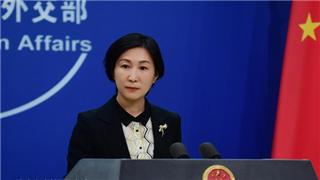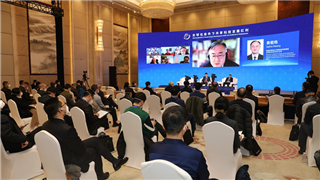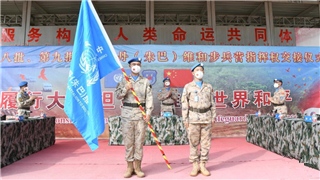The US Defense Secretary Austin Lloyd recently defiled so-called China's non-transparent practices a move to destabilize Africa at the US-Africa Summit, exposing the US geopolitical calculations behind the Summit. The US-Africa Summit held from December 13 to 15 has been eight years since the last summit. Obviously, the Biden administration intended to bridge the ever-widening trust gap between the US and Africa, and said a lot of high-sounding words at the summit. However, by stripping the sugar coating of these high-sounding words, you will detect the old formula of geopolitical games.
It has been commonplace for American politicians to discredit China-Africa cooperation, as shown by "neo-colonialism", "environmental destruction" and then "debt trap", ridiculous arguments having kept emerging. These false arguments have exposed the anxiety of some American politicians about losing their influence in Africa, the prejudice of western centralism, and the narrow-mindedness of indulging in geopolitical competition. However, in the midst of such denigration and smearing, China-Africa relations have maintained the determination never to be affected by outer incidents. Strong stability has always been a remarkable feature of bilateral ties. Among the major countries in the world, it is rarely seen that a country like China has a complete set of ideas, policies and measures in cooperation with Africa, which has been continuously promoted for decades.
The US-Africa Summit was held for the second time since the first eight years ago, while the Forum on China-Africa Cooperation (FOCAC) has gone through 22 years, and it has been a tradition for 32 years for the Chinese foreign ministers to make Africa the first destination as a visit abroad at the very beginning of the year. Since the establishment of FOCAC, Chinese enterprises have built more than 10 thousand kilometers of railways, nearly 100 thousand kilometers of roads, nearly one thousand bridges, nearly one hundred ports, and countless hospitals and schools in Africa, with the achievements made in the China-Africa cooperation widely seen in vast Africa and deeply engraved in the hearts of the local people. A survey released by South Africa's Ichikowitz Family Foundation in June 2022, found China leapfrogging the US to be the darling of many African youths, with China as a major power having the largest positive influence on the continent. A recent poll by YouGov showed that the liking for China by African people has significantly increased in recent years.
China is pleased to see all parties in the international community pay more attention to Africa, but firmly opposes the use of Africa as an arena for the game of great powers and the use of Africa strategy as a tool to contain and attack other countries' cooperation with Africa. China's promotion of cooperation with Africa is purely based on the needs of the African side, and China does not seek spheres of influence or engage in geopolitical contests, nor does it pursue self-interests. If there is anything to compete in cooperation with Africa, it is necessary to compare who has done more for Africa, who has made greater contributions to Africa, and who has paid more sweat and hard work for the benefit of the African people.
If the US really wants to facilitate Africa's development, it might as well take the opportunity of the US-Africa Summit to explain to 49 African leaders at first: the US has shown its commitment to the African continent during the first US-Africa Summit in 2014, and why it cut back on the funding to Africa in the fight against AIDS and reduce its aid to Africa. At the worst moment of the COVID-19 pandemic, why did the US send about-to-expiring vaccine doses to Africa while stockpiling a large quantity itself? Why did the US investment in Africa drop from US$69 billion in 2014 to US$44.81 billion in 2021, and why was the bilateral US-Africa trade volume in 2021 just less than half of that in 2008?
Instead of trying to smear China-Africa cooperation, the US should focus on the real needs of African countries and take concrete actions to make real efforts to promote economic and social development and improve people's livelihood in Africa.
Editor's note: Originally published on haiwainet.cn, this article is translated from Chinese into English and edited by the China Military Online. The information and opinions in this article do not necessarily reflect the views of eng.chinamil.com.cn.











